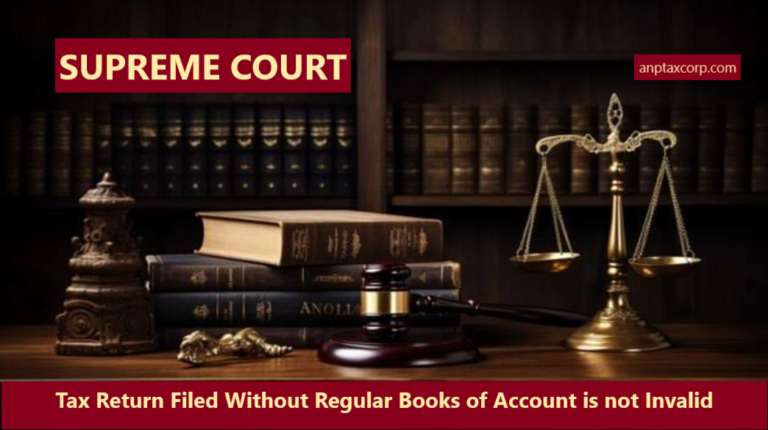Supreme Court Order: Case of Mangalam Publications vs CIT
In a recent landmark decision on 23.01.2024, in case of Mangalam Publications vs CIT (Civil Appeal No. 8580-8582 of 2011), the Supreme Court addressed the reopening of a concluded assessment under Section 147 of the Income Tax Act. The court emphasized the limited responsibility of the assessee in disclosing “material” facts and highlighted the assessing officer’s duty in case of a deemed defective return.
Background
The case involved a partnership firm’s assessment for the years 1990-91, 1991-92, and 1992-93. Due to a search and seizure operation, the appellant couldn’t submit regular books of account during the filing of returns. Despite this, assessment orders were passed under Section 143(3). Subsequently, the appellant provided profit and loss accounts and balance sheets, revealing a discrepancy and leading to the proposed reopening of assessments for the years 1988-89 to 1993-94.
Legal Proceedings
The assessing officer initiated reassessment proceedings based on a balance sheet submitted to a bank, alleging escaped income. The appellant argued the reassessment was time-barred and should not be based on estimated income. The Tribunal held the reassessments unjustified, citing lack of fresh material, but the High Court overturned this decision.
Supreme Court’s Analysis
Examining Section 147, the court noted the four-year limitation unless there’s failure on the assessee’s part to respond to a notice under Section 148 or disclose all material facts. Despite the appellant’s inability to submit regular books of account, the court found sufficient disclosure through tentative profit and loss accounts and details of incomings and outgoings. The assessing officer’s reliance on a discarded balance sheet was criticized as an error.
Key Takeaways
- Assessee’s Duty and Officer’s Responsibility: The court emphasized the assessing officer’s duty to inform the assessee of defects for rectification, shifting the burden from the assessee upon full and true disclosure.
- Validity of Reassessment: Reopening proceedings must be based on valid reasons and fresh material, highlighting the importance of discretion exercised by the assessing officer.
- Limitation Period Adherence: The appellant’s contention on the limitation period for reassessment was upheld, emphasizing compliance with statutory timelines.
Conclusion
This Supreme Court decision reiterates the principles governing reassessment under the Income Tax Act. It underscores the necessity for a valid reason to believe income has escaped assessment and the significance of timely and accurate disclosure by the assessee. This insight serves as a crucial reminder for both taxpayers and assessing officers in navigating income tax assessment procedures.
To Access the CBDT Press Release on Direct Tax Statistics for FY 2022-23 CLICK HERE
Read More
CBDT Circular 1/2024: Explanatory Notes on Provisions of Finance Act 2023
Way to file your Income Tax Return after Missing the December 31 Deadline
